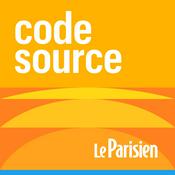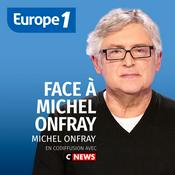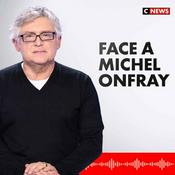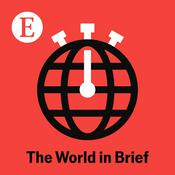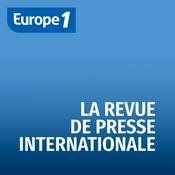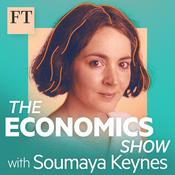511 épisodes
- Warning: this episode contains themes of sexual abuse.
Following the release of the latest tranche of Epstein files, renewed scrutiny has fallen on the convicted sex offender Jeffrey Epstein’s links to powerful figures in the United States. In the UK, attention has shifted to a related controversy that is now sending tremors through Westminster.
Newly surfaced email exchanges between Epstein and former UK ambassador to the US Peter Mandelson - also known as Britain’s “Prince of Darkness”, have raised questions about the nature of their relationship and its political ramifications, triggering a police investigation and threatening the position of Prime Minister Sir Keir Starmer.
George Parker, the Financial Times Political Editor and BBC Radio Presenter, has known the man in question for over three decades. He talks about the seismic implications the Epstein files are having on British politics.
Producers: Samantha Chantarasak, Valerio Esposito and Cat Farnsworth
Mix: Travis Evans
Senior news editor: China Collins
Photo: Peter Mandelson and Keir Starmer. Credit: Carl Court/PA Wire - On Sunday, Bad Bunny will perform at the Super Bowl half time show to an audience of more than 100 million people across the world. But the NFL’s choice of the Puerto Rican star has proven controversial, because he has long been outspoken in his criticism of the US government, including most recently at the 2026 Grammy Awards, when he called for ICE agents to be removed from the streets.
In today’s episode, Puerto Rican cultural critic Carina del Valle Schorske, who profiled Bad Bunny for The New York Times Magazine, explains how the artist’s pride in his homeland is infused throughout his music, and considers how he might use the US’ biggest stage this weekend to challenge the president’s policies.
This episode was updated on 5 February 2026 for music rights reasons.
Producers: Hannah Moore and Xandra Ellin
Mix: Travis Evans
Senior news editor: China Collins
Photo: Bad Bunny poses on the red carpet during the 68th Annual Grammy Awards. Credit: Mario Anzuoni/Reuters - For three weeks, the world has been watching to see whether Donald Trump will order military strikes on Iran. The US military has been building up forces close to the Islamic Republic, including an aircraft carrier and several warships which President Trump has been calling an “armada.”
Trump says he wants to do a deal with Iran, and the two sides appear to be talking. White House special envoy Steve Witkoff is expected to meet with the Iranian Foreign Minister on Friday in Istanbul. But Trump has threatened that if no agreement is reached, he’s ready to order US forces into action.
Frank Gardner, the BBC’s security correspondent, lays out what could happen if talks fail, and Trump decides to strike Iran. He describes several scenarios that might have major consequences for the Iranian leadership, its people, the wider region and the world.
Producers: Viv Jones
Executive producer: Bridget Harney
Sound engineer: Travis Evans
Senior news editor: China Collins
(Photo: Iran's Supreme Leader Khamenei. Credit: Iran’s Supreme Leader Office/EPA/Shutterstock) - President Trump has withdrawn the US from the Paris climate agreement for the second time and also announced plans to leave the UN Framework Convention on Climate Change. In his first year back in office, Trump has rolled back restrictions on oil, gas and coal – and has urged other countries to do the same.
China, meanwhile, has spent the past decade consolidating its expansion into clean energy technologies, even as it remains the world’s largest emitter of greenhouse gasses.
In today’s episode, BBC climate editor Justin Rowlatt explains how the growing energy rivalry between the world's biggest superpowers will shape the future of geopolitics and have profound consequences for the planet’s ability to cut carbon emissions.
Producers: Aron Keller and Hannah Moore
Mix: Travis Evans
Executive producers: James Shield and Bridget Harney
Senior news editor: China Collins
(Photo: A wind turbine and solar panels in Yancheng, China. Credit: Alex Plavesvski/ EPA) - The US military has begun to transfer up to 7000 Islamic State (IS) group detainees held in prisons in Syria to Iraq, which officials say is to prevent prisoners breaking out and regrouping. The transfer comes weeks after the US led large-scale strikes on IS group targets in Syria.
The move comes after clashes between the Syrian government and the Kurdish-led Syrian Democratic Forces, which last week ended in a deal that would see the gradual integration of Kurdish forces and institutions into the state, and transfer control of the prisons to Damascus.
Today we talk to Josh Baker, investigative journalist and host of the BBC podcast I Am Not A Monster, about the state of the IS group, and whether the country’s instability could lead to a resurgence in Syria
Producers: Sam Chantarasak and Lucy Pawle
Senior news editor: China Collins
Mix: Travis Evans
Photo: A member of the Syrian security forces stands in front of the gate of the Al-Hol camp, which houses families of suspected Islamic State (IS) group fighters. Credit: Mohammed al-Rifai/EPA/Shutterstock
Plus de podcasts Actualités
Podcasts tendance de Actualités
À propos de The Global Story
Where the world and America meet, with episodes each weekday. The world is changing. Decisions made in the US and by the second Trump administration are accelerating that change. But they are also a symptom of it. With Asma Khalid in DC, Tristan Redman in London, and the backing of the BBC’s international newsroom, The Global Story brings clarity to politics, business and foreign policy in a time of connection and disruption.
Site web du podcastÉcoutez The Global Story, LEGEND ou d'autres podcasts du monde entier - avec l'app de radio.fr
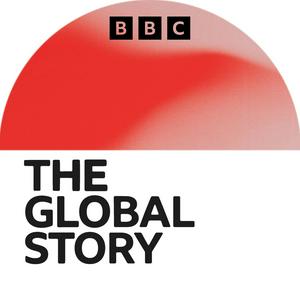
Obtenez l’app radio.fr gratuite
- Ajout de radios et podcasts en favoris
- Diffusion via Wi-Fi ou Bluetooth
- Carplay & Android Auto compatibles
- Et encore plus de fonctionnalités
Obtenez l’app radio.fr gratuite
- Ajout de radios et podcasts en favoris
- Diffusion via Wi-Fi ou Bluetooth
- Carplay & Android Auto compatibles
- Et encore plus de fonctionnalités


The Global Story
Scannez le code,
Téléchargez l’app,
Écoutez.
Téléchargez l’app,
Écoutez.










